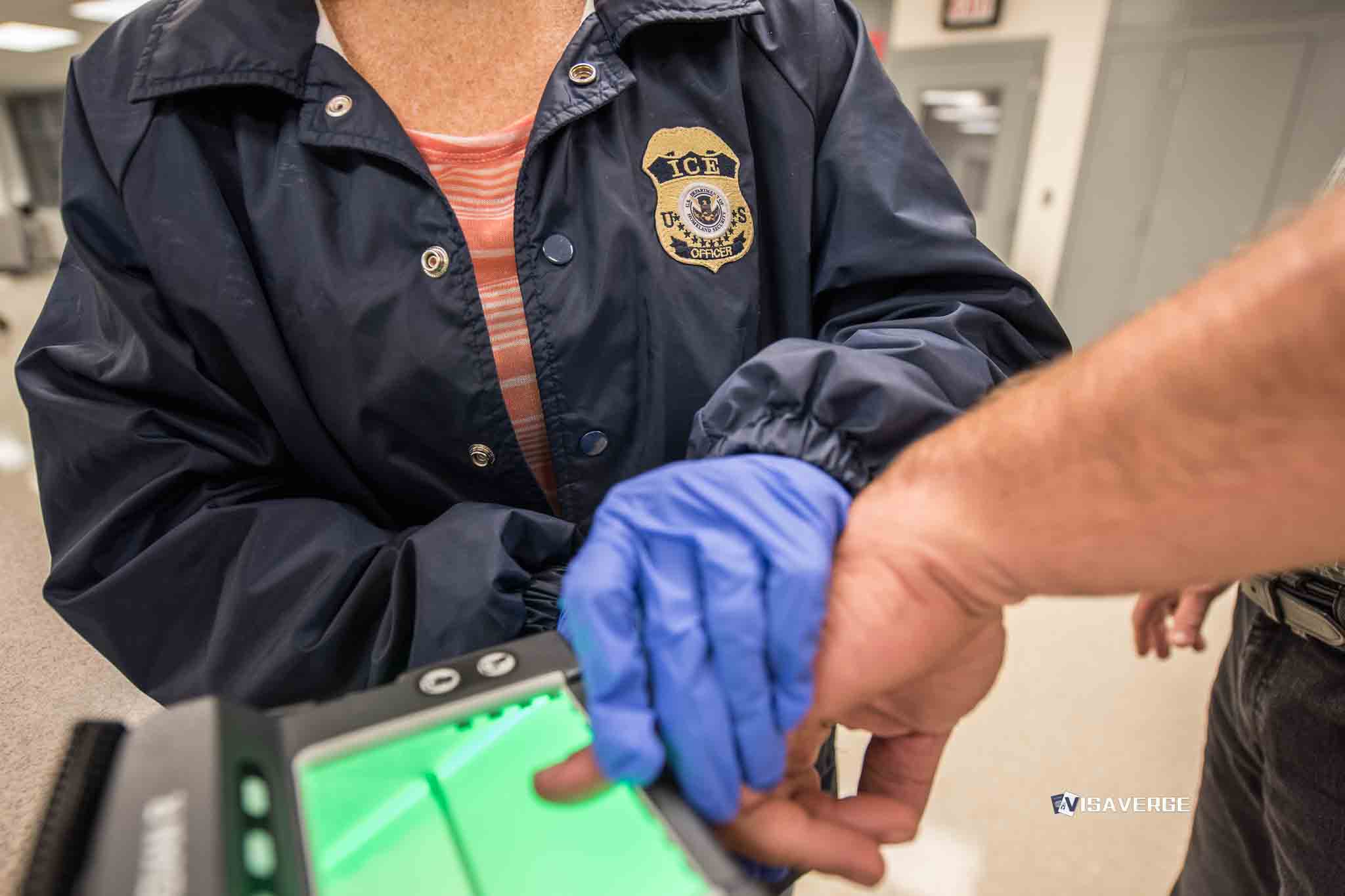(TEXAS, UNITED STATES) The Texas Department of Public Safety signed a new statewide agreement in late October to early November 2025 that allows the Texas Highway Patrol to enforce federal immigration law under the federal 287(g) program, marking a major shift in how immigration enforcement is carried out on Texas roads.
The deal with U.S. Immigration and Customs Enforcement (ICE) gives more than 3,500 troopers and DPS criminal investigators the power to question people about immigration status during traffic stops and other encounters, make immigration-related arrests, and help process cases under direct ICE supervision. It is the first time Texas has extended 287(g) powers across a statewide patrol force rather than through individual county agencies, and it expands the scope and speed of enforcement in a way likely to touch daily life for many residents and travelers.

How the agreement is structured
State officials framed the move as a formal task force arrangement with ICE, built on Section 287(g) of the Immigration and Nationality Act, which lets federal authorities delegate certain immigration powers to state and local officers.
- Troopers can ask about immigration status during routine interactions such as speeding stops or crash investigations.
- Troopers may maintain custody of people arrested for immigration violations but must quickly transfer them to ICE-approved custody.
- ICE will embed at least one official with assigned missions and will oversee decisions during operations.
- ICE can revoke any individual trooper’s immigration authority with 48 hours’ notice, and all immigration actions must flow through ICE supervisors.
- ICE will provide training and IT systems; Texas covers salaries, benefits, and in-state transportation costs for its personnel.
These supervision terms are designed to keep immigration actions aligned with federal policy and allow ICE to maintain control over immigration decisions, investigative leads, and data systems.
Scope and operational reach
This statewide agreement differs from typical county-level 287(g) deals in important ways:
- Nearly 60% of Texas counties already hold similar county agreements with ICE, but those generally focus on jail-based screening or limited functions.
- A statewide 287(g) arrangement with the Texas Highway Patrol reaches beyond county jails into routine highway and rural policing.
- The Texas Highway Patrol’s presence across 254 counties makes the partnership an enforcement multiplier, extending ICE’s reach where federal resources are thin.
According to analysis by VisaVerge.com, Texas has combined state initiatives and federal partnerships over several years to build an aggressive enforcement posture, and this statewide 287(g) places uniformed highway patrol troopers at the center of that approach.
Division of responsibilities
The agreement clarifies state and federal roles:
- ICE retains control of immigration decisions, investigative leads, and systems for processing cases.
- Troopers act as force multipliers under ICE direction and will be required to communicate directly with ICE supervisors during immigration missions.
- Troopers will receive federal training and access to systems needed for case processing, including biometrics checks and identity confirmation that can lead to federal custody decisions.
This structure mirrors other 287(g) arrangements nationally but is notable for its breadth and the number of officers involved.
Important: The official overview of the 287(g) program, including how ICE structures and monitors partnerships, is available on the agency’s website at the ICE 287(g) Program.
Reactions and concerns
Civil rights groups and immigration attorneys responded with concern, highlighting several risks:
- Immigration screening during traffic stops could invite racial profiling and raise constitutional issues.
- Critics warn the agreement could formalize and expand past informal status questions by some local officers.
- Attorneys expect legal challenges, particularly if stops appear focused on markers like language or ethnicity rather than clear violations.
- A central legal question: are ICE’s oversight provisions—supervision, documented training, and revocation authority—strong enough to prevent abuses when rapid roadside decisions are necessary?
Advocacy groups are reviewing related documents to track operational limits, complaint pathways, and how individual authority can be revoked. A detailed review of a similar 2025 agreement involving the Texas Attorney General’s Office is available in the report titled Understanding the 2025 ICE-TxAG 287g Agreement.
Community impact and responses
People in mixed-status families report changing daily routines in subtle ways:
- Planning fewer long drives and keeping proof of lawful presence readily accessible.
- Lawyers for farmworkers and construction crews expect more calls from clients stopped far from the border for minor infractions (e.g., a broken taillight or expired registration).
- Roadside questioning raises practical fears: people may feel pressured to answer status questions while coping with language barriers and the stress of a stop.
Community groups plan to distribute wallet cards explaining basic rights and how to request an interpreter, though such materials do not change the authorities granted under 287(g).
Arguments from supporters
State leaders backing the initiative say the tool is needed to address smuggling corridors and human trafficking on Texas highways:
- Troopers often encounter overloaded vehicles or evidence of coercion; immigration authority may prevent delays that could let organized networks move people or contraband farther inland.
- Supporters point to ICE oversight in the deal as a safeguard, emphasizing federal agents will be available for sensitive decisions.
- The Texas Attorney General’s Office signed its own 287(g) agreement earlier in 2025—an unusual step for that office, which traditionally handles civil litigation rather than frontline policing. This adds a layered approach pushing immigration enforcement deeper into state institutions.
Legal and policy context
The legal basis for the partnership is Section 287(g), but its reach is debated:
- Supporters contend Congress intended the statute to allow local cooperation when federal resources are stretched.
- Opponents argue immigration policy should remain federal to avoid patchwork enforcement and mixed signals.
For Texas, the statewide partnership is a show of confidence in state capacity to carry out federal goals on a large scale. For ICE, it adds trained partners who can make quick stops and hold people safely until transfer—if supervision and training keep operations within federal standards.
Monitoring, accountability, and possible outcomes
Officials have not released detailed performance targets, but likely metrics include:
- Arrests tied to smuggling operations
- Time from arrest to transfer to ICE custody
- Complaint rates and patterns of status questioning during stops
Key safeguards and risks:
- The 48-hour revocation clause allows ICE to remove a trooper’s immigration authority quickly if problems arise.
- Relying on federal systems creates a shared-responsibility model—supporters say it spreads risk and improves accuracy; critics warn it could blur accountability if encounters go wrong.
- Early months will likely set public tone: tight ICE supervision and targeted focus on smuggling could ease concerns, while high-profile roadside incidents may spur court challenges and local pushback.
Community groups plan to document cases and gather data on how often status questions arise during stops, which could influence policy debates at the state capitol and among county commissioners.
Broader implications
- For now, the statewide 287(g) agreement places the Texas Highway Patrol among the most empowered state police forces in the country on immigration matters.
- The pact elevates routine highway stops into potential federal encounters and tests the limits of a state-federal partnership operating within constitutional bounds and community expectations.
The next phase of this policy will unfold on highway shoulders, county roads, and in everyday interactions between troopers and residents—with ICE supervision and close public scrutiny of what happens next.
This Article in a Nutshell
The Texas DPS and ICE signed a statewide 287(g) agreement in late Oct–early Nov 2025 granting over 3,500 Highway Patrol troopers and DPS investigators delegated immigration enforcement powers. Troopers may question status during traffic stops, make immigration arrests, and use federal biometric and case systems while ICE embeds supervisors, provides training, and can revoke individual authority with 48 hours’ notice. Supporters emphasize smuggling prevention; civil rights groups warn of racial profiling, constitutional issues, and likely legal challenges. Early implementation, complaint patterns, and oversight will determine public impact.













